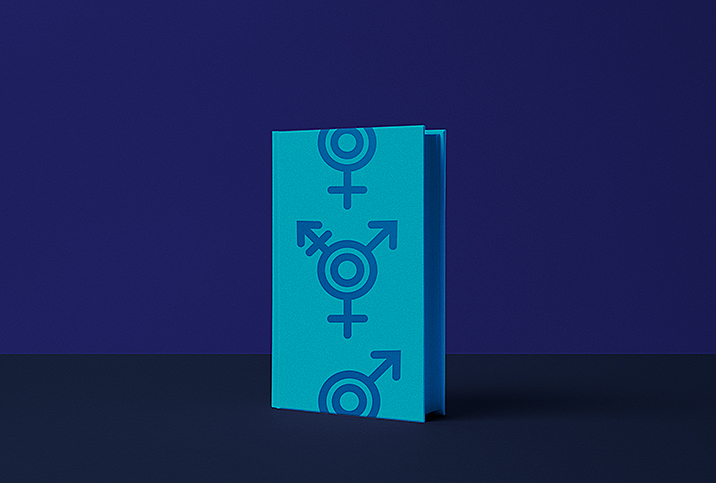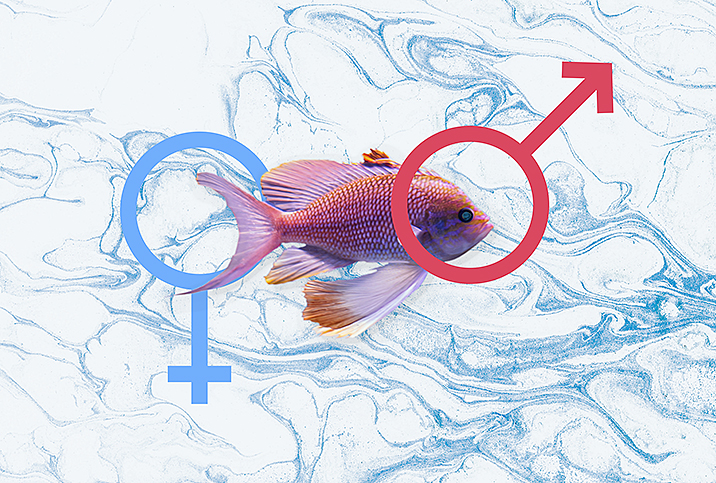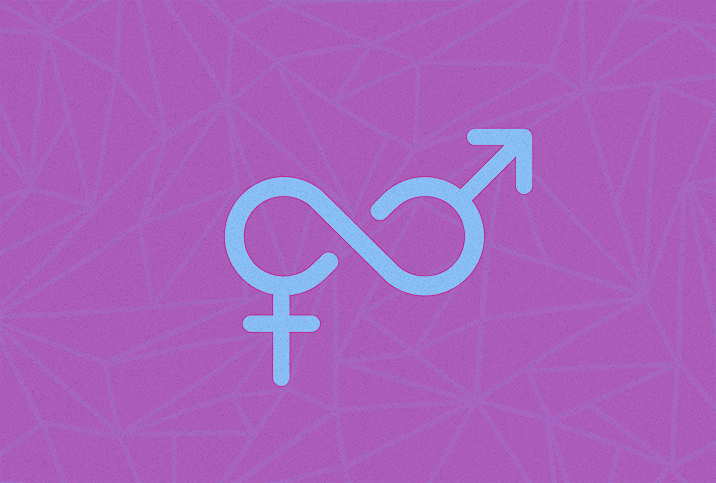Suzy Eddie Izzard Announces Her New Name

Eddie Izzard was 10 years old when she realized she wanted to go by a new first name. However, it being the early 1970s, the comedian—born Edward John Izzard—knew the world wasn't ready to meet "Suzy."
Fast-forward to March 6, 2023, when Izzard finally embraced publicly the moniker she's identified with since childhood on an episode of "The Political Party" podcast.
“I'm going to be Suzy Eddie Izzard," she said to host Matt Forde. "That's how I'm going to roll, so people can choose what they want. They can't make a mistake, they can't go wrong."
Izzard, who rose to fame as a stand-up comic, actor and activist, came out as genderfluid in the '80s and began using she/her pronouns in 2019. But Izzard kept her name the same, reasoning it might confuse fans if she tried to "redo" the name she had used from the start of her comedy career.
Izzard revisited her childhood name-changing aspirations after looking at her passport.
"I've got 'Edward' on my passport," Izzard told Forde. "It's quite wooden and big and I don't call myself that. So, I just thought, I'll add Suzy there, and then Eddie, and people can choose what they want."
Izzard takes a similar laissez-faire attitude toward pronoun usage, though she prefers to be addressed by she/her.
"I spent 50 years predominantly in boy mode, so let's try the next 50 in girl mode,” Izzard said in a 2021 interview with HuffPost UK.
"I feel I've been promoted to she and it's a great honor, but I'm still genderfluid and I tell everyone that's supported me, 'Relax, people, he or she, it doesn't really matter,'" she continued. "The pronoun thing isn't the important thing; the important thing was coming out back in 1985, that was the tough time."
Izzard's decades-long career began on the stand-up comedy scene and progressed to starring in movies such as "Ocean's Thirteen" and "The High Note," and television series such as NBC's "Hannibal." Izzard is currently vying to be selected as the Labour Party candidate in the United Kingdom's 2024 general election.
About genderfluidity
Genderfluidity is a gender identity that changes with time and/or a given situation, said Keygan Miller, public training manager for the Trevor Project, a national organization dedicated to suicide prevention for LGBTQIA+ youth.
"This is opposed to a fixed gender identity," said Miller, who uses they/them pronouns.
Gender identity refers to the way a person identifies internally and is different from sex, which refers to the genitalia someone has at birth.
Genderfluid falls under the larger umbrella of nonbinary, which Miller said describes people who experience their gender identity and/or expression outside of the male/female and man/woman binary.
"[Nonbinary] includes folks who are genderfluid, genderqueer, polygender, bigender, demigender, agender and many others," they added.
How to support someone who is genderfluid
To support someone who has come out to you as genderfluid, Miller said to voice your acceptance just like you would with any friend or loved one who discloses a personal experience that is important to them.
"Even if you're not an expert on gender identity, reminding this person that you are there for them, willing to use the pronouns they prefer, are supportive of them in their journey and that you are open to learning can all go a long way," they said.
Miller pointed to Trevor Project research that shows transgender and nonbinary youth attempt suicide less when their pronouns are respected, when they are allowed to officially change the gender marker on their legal documents and when they have access to spaces that affirm their gender identity.
"It's important to respect this person's privacy, especially if they express concern or discomfort in disclosing their identity to others," they added. "Refrain from sharing anyone else's story for them. Doing so could potentially compromise their safety, particularly if the environments they occupy or their families and social support systems are not accepting of genderfluid identities."
How to talk about gender respectfully
Miller emphasized that—in the same way we can't assume people's names—we can't assume someone's pronouns or gender identities.
"It's best to always introduce yourself with your pronouns when you meet someone new, which gives them the opportunity to share theirs," they said. "Make sure to remember people's pronouns and use them correctly."
Miller stressed that not everyone takes the same lackadaisical attitude toward names and pronoun usage as Izzard. Misgendering someone—or using the wrong name, pronouns or form of address for a person's gender—can be deeply hurtful.
"If you misgender someone by accident, apologize swiftly without making an excessive show out of the mistake or your guilt, which can create even more discomfort for the person who has been misgendered," Miller said. "Show that you care by doing better moving forward."


















